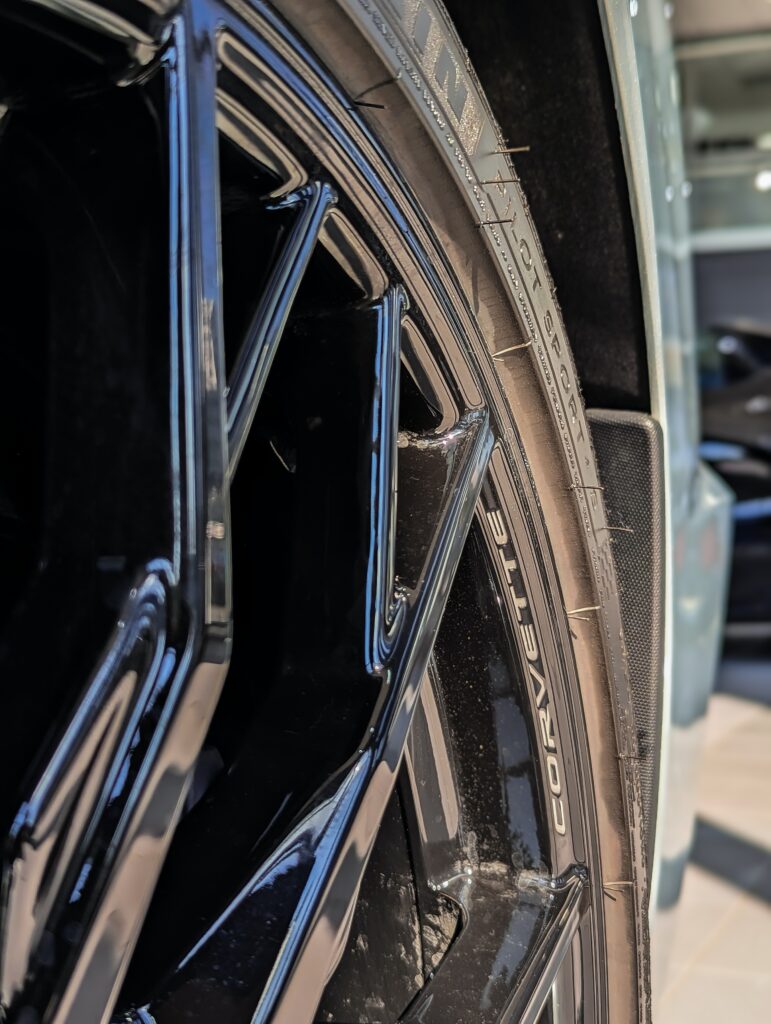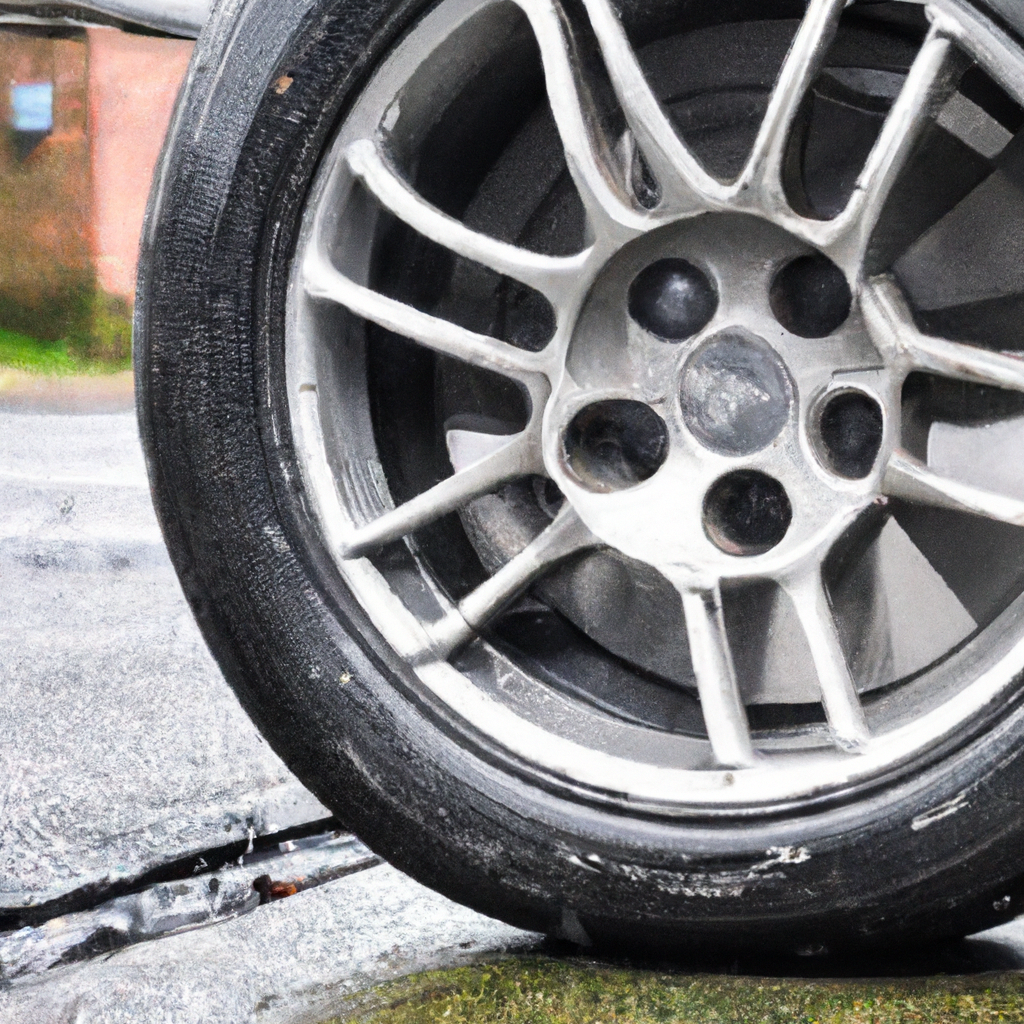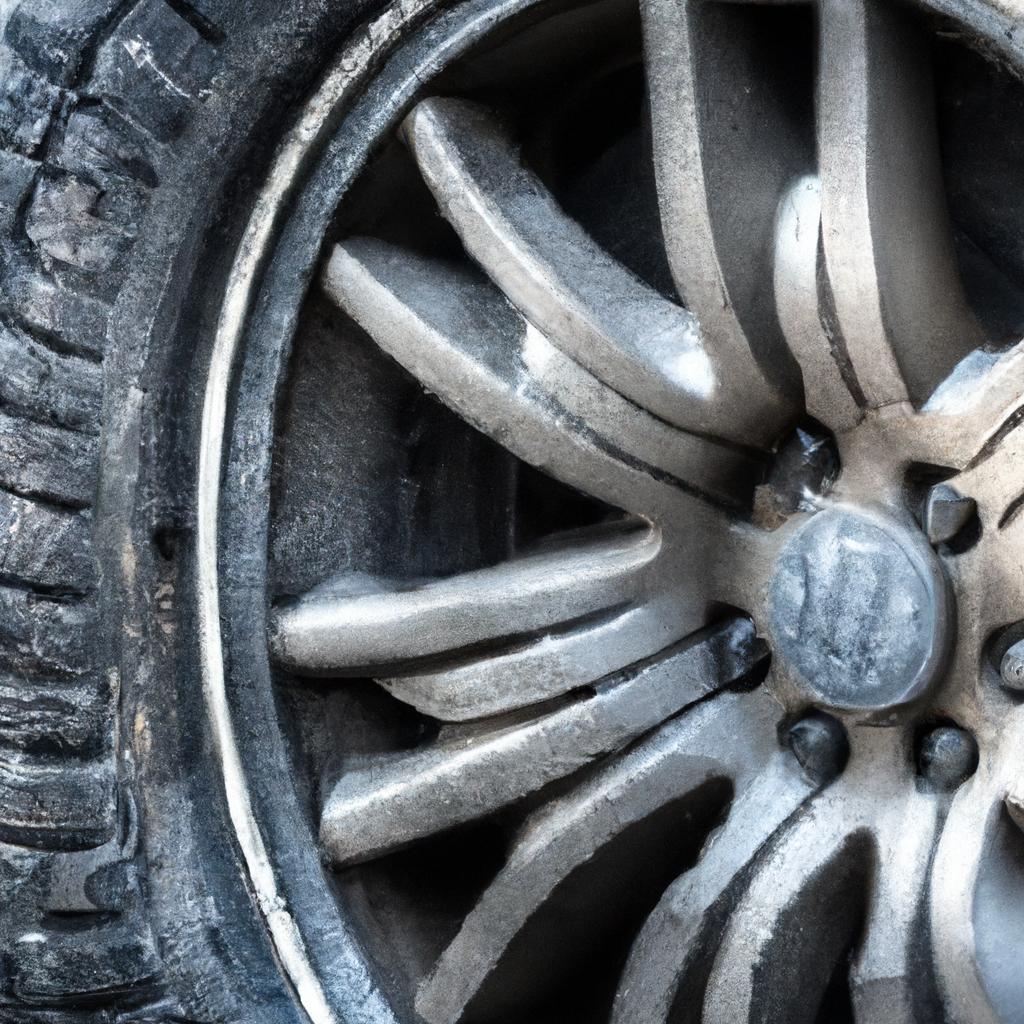Maintaining the longevity and performance of your vehicle’s wheels is an essential part of proper car care, but the question of how often to clean them may linger in your mind. To ensure optimal protection against dirt and debris buildup, it is crucial to find a balance between regular cleaning and preventing overexertion. Discovering the ideal frequency for cleaning your wheels not only enhances their aesthetics but also minimizes the risk of corrosion and damage. In this article, we will explore the key factors that contribute to the answer, providing you with valuable insights to maintain your wheels in pristine condition.
The importance of cleaning wheels
Caring for your wheels is an essential part of maintaining the overall appearance and functionality of your vehicle. Regular wheel cleaning not only enhances the aesthetic appeal of your car but also offers several other important benefits. This article will delve into the significance of cleaning wheels and provide you with comprehensive guidelines, techniques, and tips to help you achieve optimal protection for your wheels.
Removing brake dust
One of the primary reasons why cleaning wheels is crucial is the removal of brake dust. Brake dust is a byproduct of the braking system and is comprised of fine particles that result from the friction between the brake pads and the rotors. Over time, brake dust accumulates on the wheels, forming a stubborn layer that can be difficult to remove. If left unaddressed, this buildup can lead to permanent damage, including corrosion and pitting, jeopardizing the integrity of your wheels.
Preventing corrosion
Another compelling reason to clean your wheels regularly is to prevent corrosion. Wheels are constantly exposed to various environmental elements, including dirt, salt, and moisture, which can all contribute to the formation of rust. If corrosion sets in, it can weaken the structure of the wheels, compromising their stability and potentially leading to safety hazards. By diligently cleaning your wheels, you can remove any corrosive substances and protect them from long-term damage.
Enhancing appearance
Beyond maintenance and protection, cleaning your wheels also plays a crucial role in enhancing the appearance of your vehicle. Well-maintained and clean wheels contribute to the overall aesthetic appeal and make a positive first impression. Whether you take pride in showcasing a spotless car or simply want to uphold its resale value, investing time in cleaning your wheels is an easy and effective way to elevate the overall look of your vehicle.
Factors that affect the frequency of cleaning
The frequency of wheel cleaning can vary depending on several factors. Understanding these factors will help you determine the ideal cleaning schedule for your specific situation.
Driving conditions
The driving conditions you encounter on a regular basis play a significant role in determining how often you should clean your wheels. If you frequently drive on dusty or muddy roads, your wheels will accumulate dirt and grime more quickly, necessitating more frequent cleaning. Conversely, if you primarily drive on clean and well-maintained roads, you may be able to clean your wheels less often.
Environmental factors
The environment in which you live also affects the frequency of wheel cleaning. For example, if you reside in an area with a high salt content in the air due to proximity to the ocean or winter road treatments, you will need to clean your wheels more frequently to prevent salt damage and corrosion. Similarly, areas with high pollution levels or heavy industrial activity may result in dirtier wheels, requiring more frequent cleaning.
Type of wheels
The type of wheels you have can also influence the frequency of cleaning. Different wheel materials may have different vulnerabilities and cleaning requirements. For instance, alloy wheels are more prone to brake dust buildup, while chrome wheels are susceptible to water spots and etching. Steel wheels, on the other hand, may be less susceptible to certain types of damage and may require less frequent cleaning.
Frequency of use
The frequency with which you use your vehicle can impact the cleanliness of your wheels. If you are an avid driver who covers a significant amount of mileage, your wheels will naturally accumulate more dirt and grime, necessitating more frequent cleaning. Conversely, if you are a casual driver who uses your vehicle infrequently, you may be able to clean your wheels less often.

Cleaning methods for different wheel types
Different wheel materials require different cleaning methods to ensure optimal results. Let’s explore the appropriate cleaning techniques for alloy wheels, steel wheels, and chrome wheels.
Alloy wheels
Alloy wheels are a popular choice for many car owners due to their lightweight and stylish appearance. However, they are also more susceptible to damage and require proper care. To clean alloy wheels effectively, start by rinsing them with water to remove loose dirt and debris. Then, apply a specialized wheel cleaner designed for alloy wheels and gently scrub the surface with a soft wheel brush. Be careful not to use any abrasive materials or harsh chemicals that could scratch or tarnish the wheels. Finally, rinse the wheels thoroughly with water and dry them completely to prevent water spots or streaks.
Steel wheels
Steel wheels are known for their durability and affordability. Cleaning steel wheels is relatively straightforward. Begin by rinsing the wheels with water to remove loose dirt and debris. Then, prepare a mild soap solution and use a microfiber cloth or a soft-bristled brush to clean the surface, paying special attention to any stubborn spots or stains. Avoid using abrasive materials that could scratch the wheels. Rinse the wheels thoroughly with water and dry them completely to prevent rust formation.
Chrome wheels
Chrome wheels are highly sought after for their mirror-like shine and luxurious appearance. However, they require specific cleaning techniques to maintain their pristine condition. Begin by rinsing the wheels with water to remove any loose dirt and debris. It is crucial to avoid using harsh chemicals or abrasive materials that can damage the chrome finish. Instead, opt for a wheel cleaner specifically formulated for chrome wheels. Gently scrub the wheels using a soft wheel brush or a microfiber cloth, paying attention to any water spots or stains. Rinse the wheels thoroughly with water and dry them completely using a clean, lint-free cloth to prevent water spots or streaks.
Recommended cleaning products and tools
To achieve optimal results when cleaning your wheels, it is important to use the right cleaning products and tools. Here are some essential items to include in your wheel cleaning arsenal.
Wheel cleaner
Investing in a high-quality wheel cleaner specifically designed for your wheel type is essential. Different wheel materials require different cleaning formulas to avoid damage or discoloration. Look for a wheel cleaner that is safe for use on your specific wheel type and effectively removes brake dust, dirt, and grime without causing any harm.
Microfiber cloth
Microfiber cloths are a must-have tool for wheel cleaning. They are gentle on the wheels’ surface, effective at trapping dirt, and won’t leave behind lint or scratches. When selecting a microfiber cloth, opt for a high-quality one with a plush texture for optimal results. Consider having multiple microfiber cloths on hand to avoid cross-contamination between cleaning solutions and different wheel surfaces.
Wheel brush
A soft-bristled wheel brush is essential for reaching tight spots and intricate wheel designs. Look for a brush specifically designed for wheel cleaning, with bristles that are firm enough to remove dirt but gentle enough not to scratch the wheels. The brush’s ergonomic handle will make it easier to maneuver and clean hard-to-reach areas effectively.
Hose or pressure washer
Having a hose or pressure washer is vital for rinsing off the wheels during the cleaning process. Use the hose or pressure washer to remove loose dirt and debris before applying any cleaning products. Adjust the water pressure according to the wheel material and avoid using excessive force that could cause damage.

Frequency guidelines for different scenarios
While the frequency of wheel cleaning may vary depending on various factors, here are some general guidelines to help you establish an appropriate routine for maintaining clean and well-protected wheels.
Every week
If you drive in challenging conditions, such as dusty or muddy roads, or live in an area known for heavy pollution, it is advisable to clean your wheels every week. Regular cleaning will prevent excessive dirt and grime buildup and minimize the risks of corrosion or permanent damage.
Every two weeks
For most average driving conditions and environments, cleaning your wheels every two weeks should suffice. This timeframe strikes a balance between maintaining the cleanliness of your wheels and the convenience of regular cleaning.
Every month
If you primarily drive on well-maintained roads, have a limited driving schedule, or live in an area with relatively clean air and low pollution levels, cleaning your wheels once a month may be sufficient. However, be sure to inspect your wheels regularly for any signs of dirt, grime, or damage that may require more frequent cleaning.
Signs that indicate the need for immediate cleaning
While adhering to a regular cleaning schedule is essential, certain signs may indicate the need for immediate cleaning. Identifying these signs will allow you to take prompt action to protect your wheels.
Visible dirt and grime
If you notice a significant accumulation of dirt, grime, or road debris on your wheels, it is a clear indication that they are due for a cleaning. The longer dirt and grime remain on the wheels, the greater the likelihood of damage or corrosion.
Loss of shine
Wheels that appear dull or lackluster may indicate the presence of contaminants or a buildup of brake dust. Regular wheel cleaning helps to maintain the shine and luster of your wheels, preserving their overall appearance.
Buildup of brake dust
Brake dust accumulation is a common issue that affects the appearance and performance of wheels. If you observe a thick layer of brake dust on your wheels, it is crucial to clean them promptly to prevent it from causing long-term damage.

Cleaning techniques for maximum protection
To ensure maximum protection for your wheels, incorporate these cleaning techniques into your routine.
Pre-rinse the wheels
Before applying any cleaning products, it is important to pre-rinse the wheels with water. This step helps remove loose dirt, dust, and debris that may scratch the wheels during the cleaning process.
Use a gentle cleaning solution
Choose a wheel cleaner that is safe for your specific wheel type and dilute it according to the manufacturer’s instructions. Avoid using harsh chemicals or household cleaners that can damage the wheels and compromise their appearance.
Avoid abrasive materials
Using abrasive materials such as harsh brushes, scouring pads, or harsh chemicals can scratch or damage the wheels. Opt for soft-bristled brushes, microfiber cloths, or specialized wheel cleaning tools designed to be gentle yet effective.
Dry the wheels thoroughly
After cleaning, ensure that the wheels are thoroughly dried. Drying prevents water spots or streaks from forming on the wheel surfaces. Use a clean, lint-free cloth to remove any remaining moisture, paying attention to hard-to-reach areas or intricate designs.
Benefits of regular wheel cleaning
Regular wheel cleaning provides numerous benefits that extend beyond simple maintenance. Here are some key advantages of keeping your wheels clean.
Preserving the wheel’s finish
Regular cleaning removes brake dust, dirt, and grime that can mar the appearance of your wheels. By maintaining a clean surface, you can preserve the wheel’s finish, allowing it to shine and stand out.
Prolonging the lifespan of the wheels
By preventing the buildup of brake dust and the onset of corrosion, regular wheel cleaning helps prolong the lifespan of your wheels. Protecting the integrity and structural strength of your wheels can save you from costly repairs or replacements down the line.
Preventing costly repairs
Neglecting to clean your wheels can lead to long-term damage, including corrosion, pitting, or rust formation. Repairing or replacing damaged wheels can be a significant expense. Regular cleaning minimizes the risk of these issues, helping you avoid expensive repairs.
Maintaining resale value
Clean, well-maintained wheels significantly enhance the resale value of your vehicle. Just as a well-maintained car exterior makes a positive impression on potential buyers, pristine wheels contribute to the overall impression of a vehicle’s value and care.

Common mistakes to avoid
Avoiding common mistakes during the wheel cleaning process can ensure optimal results and prevent damage to your wheels. Here are some mistakes to steer clear of:
Using harsh chemicals
Avoid using household cleaning products or harsh chemicals that are not designed specifically for wheel cleaning. These products can strip away protective coatings, corrode the wheels, or cause discoloration.
Neglecting to clean the inner wheel
Don’t forget to clean the inner wheel surfaces. While the outer surfaces tend to be more visible, dirt, grime, and brake dust can accumulate on the inner surfaces, leading to corrosion or damage.
Not drying the wheels properly
Leaving the wheels damp can result in water spots or streaks, detracting from their overall appearance. Ensure that you thoroughly dry the wheels after cleaning to maintain their shine and prevent any water-related damage.
Additional tips for optimal wheel maintenance
In addition to regular cleaning, here are some extra tips for maintaining your wheels in optimal condition:
Apply a protective coating
Consider applying a protective coating or sealant to your wheels after cleaning. These coatings create a barrier between the wheels and contaminants, making future cleaning easier and providing extra protection against dirt, grime, and brake dust.
Regularly check tire pressure
While not directly related to wheel cleaning, it is essential to regularly check your tire pressure. Properly inflated tires not only improve fuel efficiency but also lessen the strain on your wheels. Consult your vehicle’s owner’s manual for the recommended tire pressure and adjust as necessary.
Inspect for any damage
Regularly inspect your wheels for any signs of damage, such as cracks, bends, or chips. Promptly addressing any issues will prevent further deterioration and ensure the safety and performance of your wheels.
Avoid curbing the wheels
Be cautious when parking or maneuvering your vehicle to avoid curbing the wheels. Scratches, scuffs, or dents caused by curbing can be difficult and costly to repair, impacting both the appearance and functionality of your wheels.
By following these guidelines and implementing effective cleaning techniques, you can maintain clean, protected, and visually appealing wheels. Regular wheel cleaning not only enhances the overall aesthetics of your vehicle but also safeguards your investment, prolongs the lifespan of your wheels, and maintains their resale value. So, make wheel cleaning a regular part of your car care routine and enjoy the benefits of well-maintained wheels for years to come.


